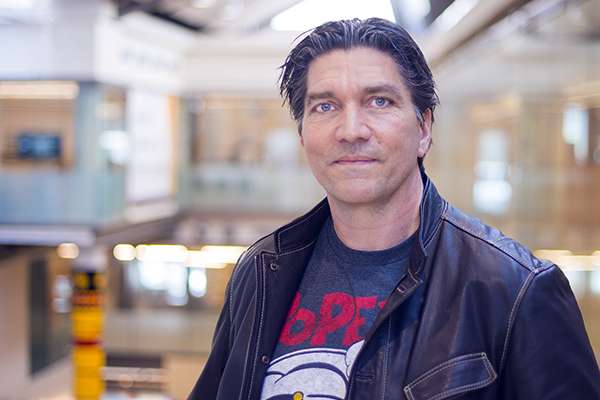Seeking control

Google's Project Loon aims to provide internet access to the entire globe using a network of high-altitude balloons. Less than half the world's population and fewer than 30 per cent of people in Africa and Asia have internet access today.
Martin Guay (Chemical Engineering) and colleagues showed in a recent research paper how an innovative distributed control technique – distributed extremum seeking control (ESC) – can be used to solve the balloon problem without requiring complex wind models or large amounts of computing power. Dr. Guay's simulation study, involving 1,200 balloons, illustrates how distributed ESC can determine the optimal configuration for balloons floating on changing, non-linear wind currents to provide adequate internet coverage for all users at the lowest cost.
"We're pushing the boundaries of this control technique. It's a very practical tool, which can be used to solve large-scale operating problems in any type of industry in a simple way. Every company I talk to will listen because it does exactly what they are looking for, real-time optimization in a model-free way," he says.
Dr. Guay works with large companies such as Mitsubishi Electric, United Technologies, Johnson Controls and Praxair to continually improve, refine and apply his control method to optimize in real time power consumption, manufacturing productivity and chemical processes – and ultimately, profitability – across a wide range of industries. With Mitsubishi Electric, for example, he has applied the technique and its algorithms to optimize energy performance in heating and cooling buildings.
"These techniques allow you to minimize a building's total power consumption by manipulating the energy-management control system to give you the best performance," he says. "A small change in power consumption can result in a lot of cost savings."
Consider a large grocery store with multiple heating and cooling systems, lots of open space with doors opening and closing, and varying numbers of people shopping. The store conditions are constantly changing and very complicated to model in a realistic way. The control problem is to maintain a constant store temperature with the least power consumption.
"This technique allows you to find extra degrees of freedom to adjust the compressor speed or fan speed, for example, to changing conditions in real time to minimize power consumption while maintaining a constant temperature," Dr. Guay says. "It's an adaptable tool that could easily be used to retrofit the energy systems in office, retail, industrial or apartment buildings."
His innovative and influential contributions in the areas of process control engineering and real-time decision-making support have been recognized with the Premier's Research Excellence Award, the Queen's Chancellor's Research Award and the Syncrude Canada Innovation Award. He also received the Golden Apple Award for his teaching from Queen's Engineering undergrads. His past work with Suncor Energy, Syncrude Canada and Royal Dutch Shell in the Alberta oil sands to help optimize plant productivity and performance under changing daily operating and market conditions takes on greater urgency and relevance in today's world of low oil prices.
Dr. Guay sees exciting opportunities as well to develop real-time optimization tools in multiple areas. Such tools could be used in drug delivery in medicine to develop tailored individual treatments.
"Every individual responds differently to medications," he says. "We'd like to work with pharmaceutical companies to develop drug delivery systems that could find the optimal dose from measurements of blood sugar, blood pressure or cholesterol from the patient in real time."
ESC is also ideal for the development of cyber-secure control systems.
"The model-free aspect of the technique can minimize the complexity of control systems and reduce their vulnerability to cyber-attacks," Dr. Guay says.
Provided by Queen's University



















